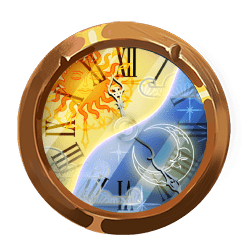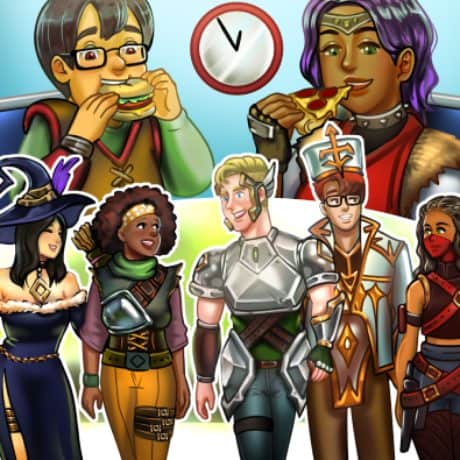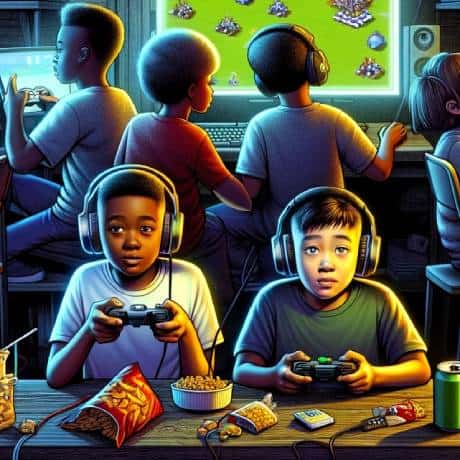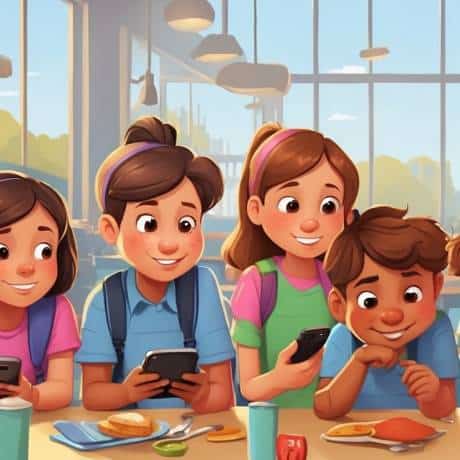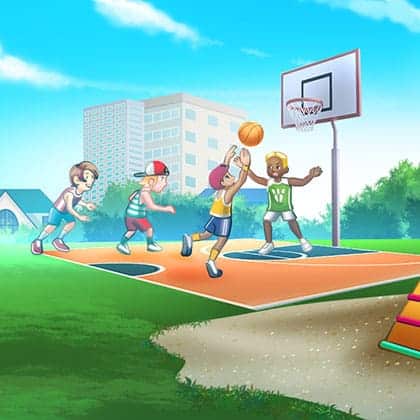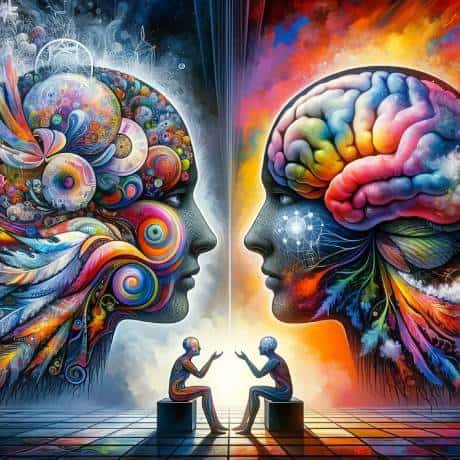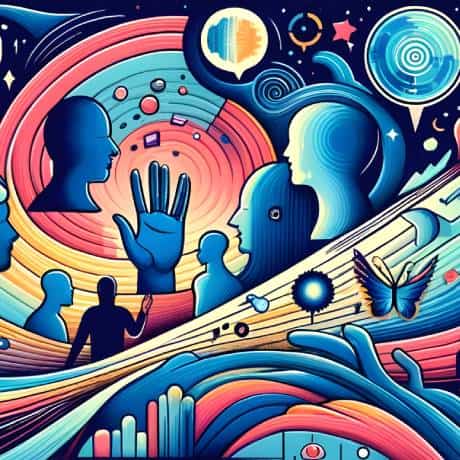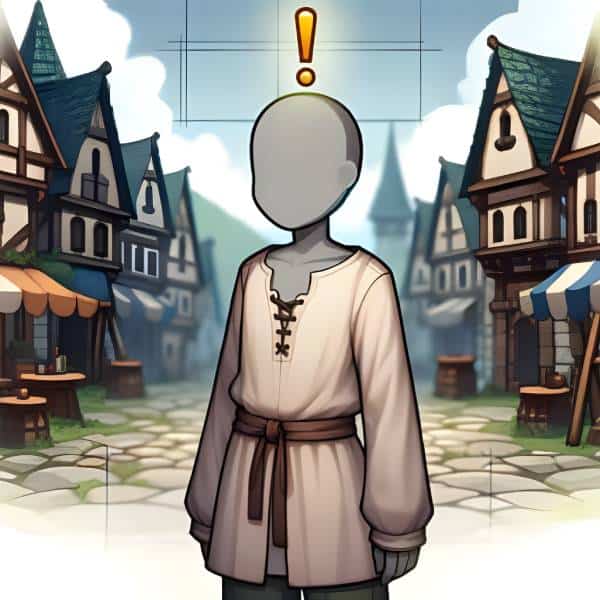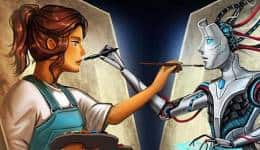Shades of Understanding: How Perception Shapes Our Reality
Blue is blue to you, yet not everyone sees blue the same way you do, meaning the way you see the world differs from others.
 It’s not just about colour; it’s about how your avatar perceives the world differently and your preconceptions. 🧠✨
It’s not just about colour; it’s about how your avatar perceives the world differently and your preconceptions. 🧠✨
For example, the thumbs-up gesture👍:
💠 In Western societies, it typically signifies that everything is okay or is a sign of approval.
💠 In Germany, it means ‘number one’ or signifies agreement.
💠 In parts of the Middle East and some European countries, it is considered an insult.
Our reality is subjective, folks! We agree to call ‘X’ an ‘X’, but that ‘X’ can have different meanings in different languages, cultures and even individuals. 🗣️🌍
Your power comes from your perceptions and preconceptions.
It’s time to shake up those beliefs to uplift your reality! 🚀
Table of Contents
Perceptions and Preconceptions
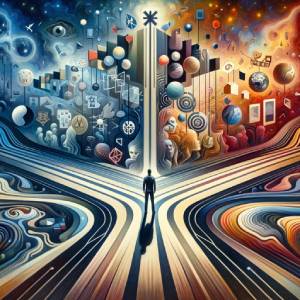 The statement “Your power comes from your perceptions and preconceptions” is more philosophical or interpretive in nature rather than a definitive fact that can be labelled true or false in the strictest sense. However, it holds significant truth in many contexts, especially in psychology, philosophy, and personal development. Let’s break down why this might be considered true:
The statement “Your power comes from your perceptions and preconceptions” is more philosophical or interpretive in nature rather than a definitive fact that can be labelled true or false in the strictest sense. However, it holds significant truth in many contexts, especially in psychology, philosophy, and personal development. Let’s break down why this might be considered true:
- Perceptions Shape Reality:
How we perceive the world around us greatly influences our understanding of it. Our perceptions filter our experiences and can determine our reactions and interactions. If we perceive a situation as positive, our response will likely be more optimistic and vice versa. This perception-driven approach can significantly influence our decision-making and actions.
- Preconceptions Guide Behavior:
Preconceptions, or the pre-existing beliefs and biases we hold about people, situations, or environments, can powerfully guide our behaviours and decisions. For instance, if we have a preconception that a certain task is difficult, we might approach it with hesitancy or even avoid it, potentially limiting our experiences or growth.
- Influence on Personal Reality:
Our mental and emotional states often reflect our perceptions and preconceptions. This internal state can be considered our personal reality. Thus, the power to change our internal state – our attitudes, feelings, and outlook – often lies in changing our perceptions and challenging our preconceptions.
- Cognitive and Emotional Control:
Understanding and harnessing the power of perception and preconception can lead to better emotional and cognitive control. When we realize that we can interpret situations differently or let go of unhelpful preconceptions, we gain more control over our emotional responses and thought processes.
- Impact on Relationships and Social Interactions:
Our perceptions and preconceptions also shape how we interact with others. They can lead to misunderstandings and conflicts or, conversely, can foster empathy and understanding. Knowing this can empower us to improve our relationships and social interactions.
While the statement isn’t a universal truth in a scientific sense, it holds significant validity in terms of personal development, psychology, and social interactions. The power of perception and preconception is a crucial aspect of how we experience and interact with the world, and recognizing this can be a powerful tool for personal growth and understanding.
Embracing Diversity of Thought
The diversity of perceptions and preconceptions is not just a challenge; it’s an opportunity. Embracing different viewpoints can broaden our horizons and enhance our understanding. This diversity, stemming from various cultural, social, and personal backgrounds, enriches our collective human experience.
The Role of Communication
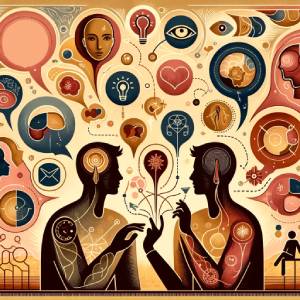 Effective communication is key in navigating the complexities of different perceptions and preconceptions. It involves not only conveying our thoughts but also actively listening to and trying to understand others’ viewpoints. This mutual understanding can bridge gaps and foster a more inclusive environment.
Effective communication is key in navigating the complexities of different perceptions and preconceptions. It involves not only conveying our thoughts but also actively listening to and trying to understand others’ viewpoints. This mutual understanding can bridge gaps and foster a more inclusive environment.
Achieving effective communication, especially in the context of diverse perceptions and preconceptions, involves several key practices:
- Active Listening: This means fully concentrating on what is being said rather than just passively ‘hearing’ the message of the speaker. Active listening involves listening with all senses and giving full attention to the speaker. It includes acknowledging, summarizing, and reflecting on what is said.
- Empathy: Try to put yourself in the other person’s shoes to understand their perspective. This doesn’t mean you have to agree with them, but understanding where they are coming from can greatly enhance communication.
- Open-Ended Questions: Encourage a deeper conversation and understanding by asking questions that require more than a yes or no answer. This can help uncover underlying reasons and feelings.
- Non-Verbal Communication: Pay attention to body language, facial expressions, and tone of voice. These can often convey more than words and can help in understanding the true message.
- Avoid Assumptions: Don’t make assumptions about what the other person is thinking or feeling. Instead, ask them to clarify their point of view to ensure you understand correctly.
- Respect Differences: Acknowledge that different opinions and perspectives are valid, even if they differ from your own. This creates a safe environment for open dialogue.
- Clarity and Conciseness: Be clear and concise in your communication. Avoid jargon or complex language that might be misunderstood.
- Feedback: Offer constructive feedback, and be open to receiving feedback as well. This can help both parties learn and grow in their communication skills.
- Patience: Some conversations require time, especially when complex perceptions and preconceptions are involved. Be patient and give the conversation the time it needs.
- Follow-Up: Especially in situations where perceptions vary greatly, it’s important to follow up after the initial conversation to ensure ongoing understanding and to address any lingering issues.
For example, in a Roleplaying setting, a Game Master might encounter a conflict between players from different cultural backgrounds. By actively listening to each member, asking open-ended questions to understand their perspectives, and respecting their differing viewpoints, the manager can facilitate a dialogue that acknowledges and works through these differences. This approach resolves the immediate conflict and fosters a more inclusive and cooperative team environment.
The Journey of Self-Discovery
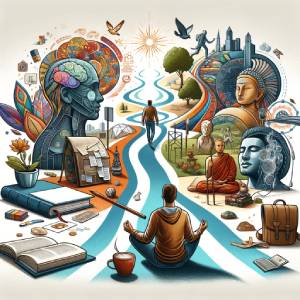 Exploring our own perceptions and preconceptions is a journey of self-discovery. It involves introspection and a willingness to question and reassess our views. This self-awareness can lead to personal growth, as we learn to understand and manage our biases.
Exploring our own perceptions and preconceptions is a journey of self-discovery. It involves introspection and a willingness to question and reassess our views. This self-awareness can lead to personal growth, as we learn to understand and manage our biases.
Embarking on a journey of self-discovery to explore and understand your own perceptions and preconceptions can be achieved through various methods:
- Journaling: Regularly writing down your thoughts and feelings can be a powerful tool for self-reflection. You can start by writing about your day, your reactions to certain events, and gradually delve into deeper questions about why you feel or think a certain way.
- Mindfulness and Meditation: Practices like mindfulness and meditation help in becoming more aware of your thoughts and feelings in the present moment. This increased awareness can lead to deeper insights into your subconscious biases and beliefs.
- Seeking Feedback: Sometimes, others can see aspects of our character that we can’t see ourselves. Ask for honest feedback from friends, family, or colleagues about how they perceive you and your actions. Reflect on this feedback to understand your own perceptions and behaviors better.
- Reading and Education: Broaden your horizons by reading books, articles, and research, especially those that challenge your current worldview. Understanding different perspectives can help you reevaluate your own beliefs and biases.
- Therapy or Counseling: Working with a professional can help you explore aspects of your psyche that are difficult to confront alone. Therapists are trained to guide you through self-reflection and understanding.
- Mindfulness Exercises: Engage in exercises that encourage mindfulness, such as paying full attention to a routine task, observing your thoughts without judgment, or practicing gratitude.
- Exploring New Experiences: Step out of your comfort zone by trying new things, whether it’s traveling to a different place, trying a new hobby, or meeting people from different backgrounds. New experiences can challenge your preconceptions and open your mind to new ways of thinking.
- Questioning and Challenging Your Beliefs: Actively question why you hold certain beliefs. Try to trace their origins and consider whether they still serve you well or need reassessment.
- Self-Awareness Exercises: Engage in activities like personality tests, strengths finders, or even simple lists of likes, dislikes, values, and fears to better understand yourself.
- Reflect on Past Experiences: Look back at your significant life events and consider how they’ve shaped your perceptions and beliefs. Understanding your past can provide insights into your present self.
For example, you might realize through journaling and mindfulness that you have a tendency to be overly critical in certain situations. By exploring this further, perhaps through reading or therapy, you may discover that this stems from high self-imposed standards or past experiences. Recognizing this can lead to a more compassionate approach towards yourself and others, illustrating personal growth and self-awareness.
Global Implications
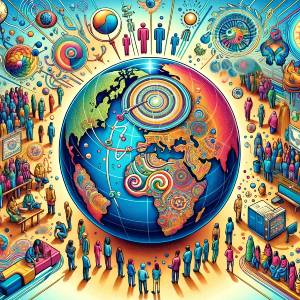 In an increasingly interconnected world, understanding the role of perceptions and preconceptions is vital. It can lead to better cross-cultural interactions and global co-operation, as we learn to appreciate and work with the diverse perspectives that shape our world.
In an increasingly interconnected world, understanding the role of perceptions and preconceptions is vital. It can lead to better cross-cultural interactions and global co-operation, as we learn to appreciate and work with the diverse perspectives that shape our world.
Read our article “Rising Above Divisions: We are all Connected in a Fractured World.” It explores the role of discrimination and division in a diverse world and examines the scientific basis of human connectedness, including the function of mirror neurons and their impact on empathy and social connections. The article also discusses quantum mechanics and its implications for global consciousness, as well as the positive effects of loving-kindness meditation on social connections and emotions towards others.
Empowerment Through Knowledge
Finally, knowledge about the nature and impact of perceptions and preconceptions empowers us. It equips us to navigate life’s challenges more effectively and to create a more empathetic and understanding society. By acknowledging and working with the diversity of human experience, we can all contribute to a more harmonious and inclusive world.
This exploration into the realms of perception and preconception reveals a complex yet fascinating aspect of human psychology. It underscores the importance of understanding and embracing the varied ways in which we all experience and interpret the reality around us.
Final Thoughts
The nature of reality is subjective, shaped by individual perceptions and preconceptions. Highlighting the fundamentals of color perception and cultural differences in gestures, the article underscores how our personal reality is crafted by our interpretation of the world. We must actively shape our experiences, challenge our beliefs, foster personal growth, and deepen our understanding of the diverse world around us.
If you don’t do this, you are living in another’s reality.
You are who you create 🎨
It’s time to create your own adventure! 🏰
Suggested Reading
Articles:
- Beyond the Game: How RPG Classes Can Shape Our Real-World Journey
Have you ever lost yourself in the grand tapestries of a role-playing game (RPG), drawn not just to the expansive worlds and epic quests, but also to the intricate classes and roles offered?
- Rising Above Divisions: We are all Connected in a Fractured World
In books, movies, and even games, we often encounter the recurring theme of interconnectedness, the power of the many, and embracing the light side. Is this merely a product of fantasy, or does it hold deeper significance?
- Vitality Challenge
Level up your real-life avatar with the ‘Vitality Challenge’, create healthy habits, and redefine yourself, all while consistently pushing your boundaries and shaping your own destiny – “You are who you Create!”
Books:
Vitality For Gamers is not affiliated with any of these books.
- “Thinking, Fast and Slow” by Daniel Kahneman – Kahneman, a Nobel Prize-winning psychologist, explores the two systems that drive the way we think, offering insight into how our perceptions are formed and influenced.
- “Blink: The Power of Thinking Without Thinking” by Malcolm Gladwell – Gladwell discusses how we think without thinking, about choices that seem to be made in an instant but actually aren’t as simple as they seem.
- “The Geography of Thought: How Asians and Westerners Think Differently…and Why” by Richard Nisbett – This book explores how people from different cultures think differently and how their thought processes are shaped by their cultural backgrounds.
- “The Invisible Gorilla: How Our Intuitions Deceive Us” by Christopher Chabris and Daniel Simons – The authors reveal the numerous ways our intuitions can deceive us, showing the importance of our perceptions and preconceptions in shaping our reality.
Author:
 | Lionel Thomas Father, Gamer and Founder with a Passion for Health, AI, Environment and Gamification of Life. |
Author Tools:
- Grammarly (Spelling and Grammar)
- ChatGPT (Content Enhancements & Research)
- Fliki (Audio by AI)
- Other Tools (AI)...
Artists:
- Lionel Thomas using DALL-E 3 [AI Generated] (Header, Content)
References:
1. Perception: Our useful inability to see reality
Nature
https://www.nature.com/articles/544296a
Summary:
This article discusses the concept that our perception includes multiple assumptions, both inherent and learned. It explores how biases like confirmation bias and hindsight bias contribute to preconceived ideas that confine us to a narrow view of our personal and social reality. The article delves into various examples, including the deciphering of the Rosetta Stone, and discusses the evolutionary perspective of perception, questioning whether there are aspects of perception, like aesthetic pleasures, that are not in service of survival.2. How Expectations Shape Perception
The Aggie Transcript
https://aggietranscript.ucdavis.edu/how-...
Summary:
This piece summarizes research from MIT, where neuroscientists used a task called “ready-set-go” to study how expectations shaped monkeys’ interpretation of their environment. The study found that prior experiences influenced the monkeys' perception of time intervals, and similar results were observed in humans. The research also examined brain areas responsible for these expectation influences, highlighting the role of the frontal cortex in temporal resolution.3. How expectation influences perception
Science Daily
https://www.sciencedaily.com/releases/20...
This source reports on MIT research about how our brain builds up and fine-tunes synaptic connections that encode prior beliefs. The study involved training animals in a timing task to understand how the brain uses these signals to make decisions in the face of uncertainty. This process, known as Bayesian integration, is believed to widely impact our perceptions, thoughts, and actions.








 Snacks
Snacks Water
Water Eye Sight
Eye Sight Hearing
Hearing

